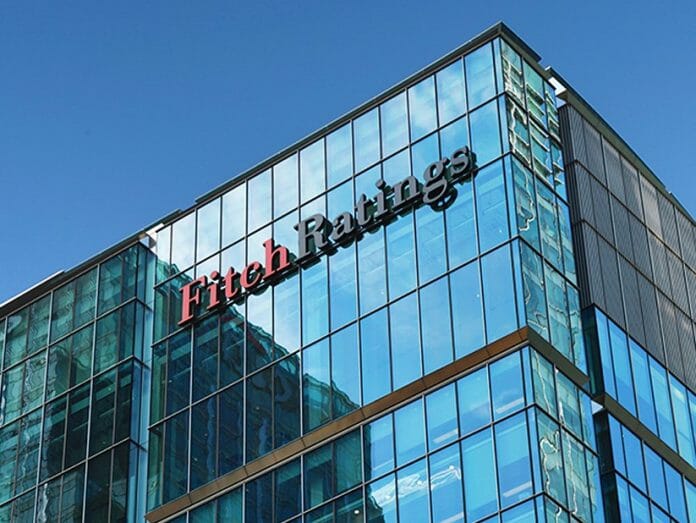Fitch Ratings has affirmed Malaysia’s Long-Term Foreign-Currency Issuer Default Rating (IDR) at ‘BBB+’ with a Stable Outlook.
Malaysia’s ratings balance a diversified economy with strong medium-term growth prospects against high public debt, a low revenue base relative to operating expenditures, and political uncertainty that hinders long-term policymaking.
Fitch expects GDP growth to moderate to 4.0% in 2023 (BBB median: 2.4%) and 4.8% in 2024, from an exceptional 8.7% in 2022, when the lifting of Covid-19 restrictions and government-relief measures led to a rapid and broad recovery. In 2023, we expect services to continue to gain from resilient domestic demand, contained inflation, and a recovery in tourism-related sectors from the reopening of China. Manufacturing and exports are likely to face headwinds from weaker global demand for electronics and commodities. The medium-term growth trend of 4.0-5.0% remains robust.
The rating house also expects the general government debt/GDP ratio to decline from 2024, on strong GDP growth amid only gradual consolidation. The ratio is expected to fall to about 73% by end-2023 (BBB median: 55.6%), from a peak of 77.6% in 2021. Our debt figures include “committed guarantees” on loans by government-linked companies and 1Malaysia Development Berhad’s (1MDB) net debt, which in 2021 totalled 14.2% of GDP. The upcoming 1MDB global bond due March 2023 of USD3 billion, or 0.7% of GDP, will be fully redeemed and financed by government domestic issuance.
Fitch is of the view the fiscal policy plans of the newly elected government will only become clearer when the full 2023 budget is re-tabled on 24 February, but we assume deficit reductions will be gradual as the government is likely to avoid resorting to unpopular revenue measures. It expects the central government deficit to decline to an average of around 4.5% of GDP in 2023-2025. The main upside risks to our projections include greater expenditure rationalisation and substantial revenue mobilisation measures, such as reintroducing a goods and services tax (GST).
It also estimates that the central government deficit declined to 5.5% of GDP in 2022, from 6.4% in 2021. Preliminary central government operations data show that revenue and expenditure rose by 29.1% and 12.1%, respectively, in 2022. Revenue collection was boosted by a robust economic recovery and one-off sources, including an additional dividend from state oil company Petroliam Nasional Berhad (PETRONAS) (BBB+/Stable), and the Prosperity Tax. The total subsidies and assistance tripled to around 4.5% of GDP in 2022 from 1.5% of GDP in 2021 amid elevated energy and food prices.
General government revenue remains relatively dependent on oil production, and current expenditure, including payrolls, pensions and subsidies, is high and rigid. We forecast the general government revenue/GDP ratio to decline from an average of 24.0% of GDP in 2010-2014 to 16.7% (BBB median: 21.1%) in 2023 and 2024. The decline is exacerbated by the replacement of the GST with the narrower sales and services tax in 2018.
The government is reviewing its use of broad-based subsidies, but we expect the shift to a more targeted regime to be gradual, as the government still prioritises alleviating the cost of living.
Near-Term Political Stability: The selection of the new prime minister and a unity government that is supported by a two-thirds majority in parliament relieves near-term political uncertainty. The stability of the unity government is supported by a recently introduced anti-hopping law that prevents members of parliament from switching parties. However, the coalition’s stability remains fragile, as the different political blocs in the coalition vary widely and the anti-hopping allows parties and blocs to collectively change their allegiance. The unity government will be tested in six state elections scheduled in 2023.
Moderate Inflation: Headline inflation averaged 3.3% for 2022. Fitch expects price controls and subsidies to keep inflation low at 2.8% in 2023. Our inflation forecast is subject to upside risk from possible policy changes on price controls and subsidies and a renewed momentum in global commodity prices. After raising rates by 100bp in 2022, Bank Negara Malaysia left the policy rate unchanged at 2.75% in January 2023 and signalled that further normalisation would balance the risks to inflation and growth outlook.
Robust Current Account Surpluses: Malaysia generated current account surpluses for more than two decades and we expect it to continue to do so in the medium term. Fitch forecasts the current account surplus to widen to 3.2% of GDP in 2023, driven by higher services exports, from 2.6% of GDP in 2022. Malaysia is well-positioned for foreign direct investment inflows, with the manufacturing sector being the largest recipient. Its strong manufacturing ecosystem will continue to attract investment in the sector, although competition is increasing from other countries in the region.
Weak External Liquidity: The house estimates the ratio of liquid external assets/liquid external liabilities at 96.3% in 2022 (BBB median: 165.1%). Short-term external debt is high relative to foreign currency reserves, but a significant part of the borrowings are stable intra-group borrowings between parent and subsidiary banks domestically and abroad. This reflects the open and regional nature of the banking sector. Non-resident holdings of domestic government bonds are high at about 22% of the total. The holdings are mostly stable in part due to Malaysia’s deep and well-developed domestic bond market relative to regional peers.
The banking sector benefits from Malaysia’s broad economic recovery. The sector’s capital adequacy ratio slightly weakened to 18.3% by end-2022, from 19.2% at end-2021. Fitch’s data showed the share of loans benefiting from repayment assistance among major banks fell to an estimated 3% of loans at September 2022, from 17% at end-2021. Moderate interest-rate hikes and a robust economy should keep credit impairments manageable (non-performing loans/total gross loans at 1.7% at end-2022). Banks’ earnings prospects are stable and credit costs continue to normalise, but remain above pre-pandemic levels.









